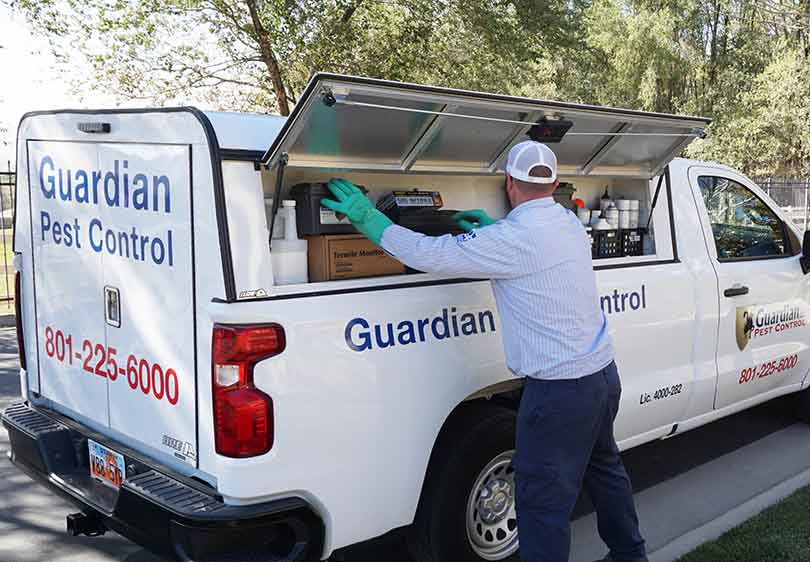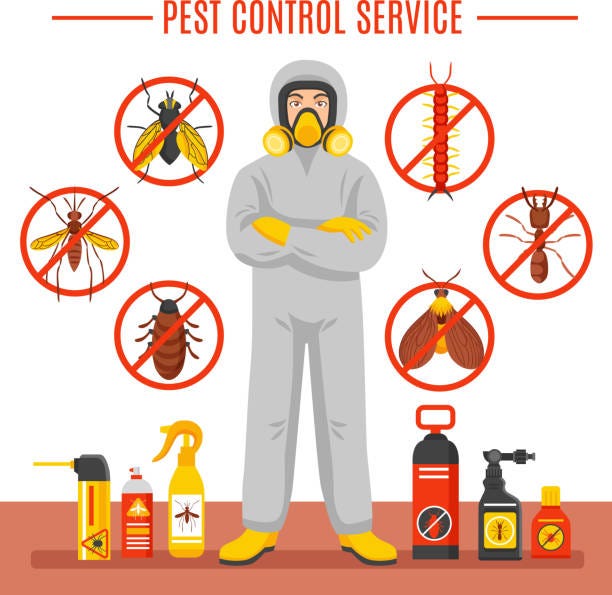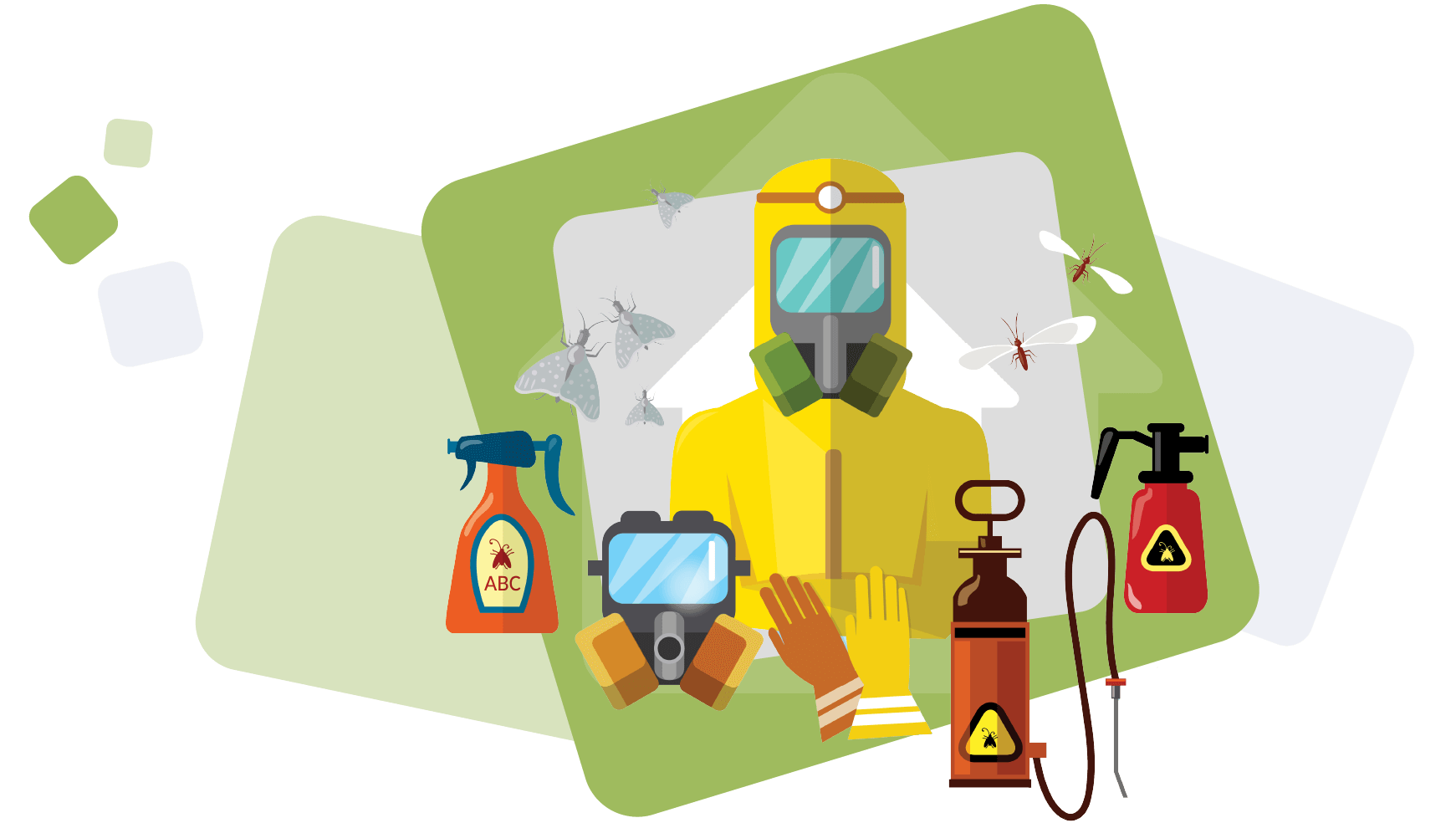Orem Pest Control Experts: Safeguarding Your Building with Proven Techniques
Orem Pest Control Experts: Safeguarding Your Building with Proven Techniques
Blog Article
Uncovering the Various Sorts Of Bug Control Techniques and Their Applications
Bug control is a critical element of preserving a healthy and balanced and secure atmosphere, whether it be in property, industrial, or agricultural settings. Different methods have been created and improved for many years to efficiently take care of and minimize pest problems. From chemical approaches that target specific parasites to biological approaches that harness all-natural killers, the realm of insect control is diverse and substantial. Comprehending the various sorts of parasite control strategies and their applications is necessary for applying the most lasting and suitable solutions. Let's explore the complexities of these techniques and how they can be efficiently used to resolve pest-related obstacles.
Chemical Parasite Control Strategies
Chemical parasite control techniques are extensively utilized in farming and insect monitoring to effectively get rid of or manage pest infestations. These approaches entail the use of chemical substances, such as insecticides, herbicides, and pesticides, to get rid of or lower parasite populations that position a threat to crops, animals, or human wellness.
While chemical pest control techniques can be very reliable in taking care of pest populations, they likewise raise issues regarding possible ecological and health dangers. It is vital to comply with security guidelines, make use of incorporated pest administration approaches, and think about different techniques to lessen the unfavorable effects of chemical bug control techniques.
Organic Parasite Control Methods
 Biological parasite control techniques utilize living microorganisms to handle and reduce pest populaces in a ecologically pleasant and lasting fashion. One usual method is the launch of ladybugs to deal with aphids in gardens, as ladybugs are all-natural predators of these destructive insects.
Biological parasite control techniques utilize living microorganisms to handle and reduce pest populaces in a ecologically pleasant and lasting fashion. One usual method is the launch of ladybugs to deal with aphids in gardens, as ladybugs are all-natural predators of these destructive insects.
Biological bug control methods offer several benefits over chemical approaches. They are normally more secure for the environment, as they do not leave damaging deposits or contribute to air pollution. Additionally, these methods are typically extra targeted, influencing just the insect types without hurting beneficial insects or other microorganisms. Biological control can be a long-term service, as the introduced organisms can establish sustainable populations and provide ongoing pest management. In general, biological bug control techniques provide a natural and effective choice to standard chemical treatments, promoting a balanced ecosystem and healthier environments.
Physical Parasite Control Approaches
Using physical approaches to control bugs involves the use of mechanical or non-chemical means to reduce and take care of pest invasions effectively. One typical physical bug control approach is the installation of internet, fencings, or displays to block insects from getting in particular locations.
An additional physical approach is making use of catches, such as breeze catches for rats or scent view traps for insects. These traps goal to catch parasites without posing any kind of threat to human beings or the setting. Additionally, physical control methods can include methods like handpicking pests off plants, using vacuum devices to remove insects, or employing heat therapies to get rid of bed bugs and various other pests in infested locations.
Integrated Insect Administration Techniques
Applying an all natural approach to pest management, Integrated Insect Monitoring (IPM) strategies aim to combine various effective methods to manage and stop pest infestations while minimizing environmental impact and ensuring lasting go to the website bug control methods. IPM involves the integration of multiple control approaches such as biological control, cultural techniques, mechanical control, and the cautious use chemicals.

Additionally, IPM stresses the importance of tracking and assessing pest populaces to establish the most proper control approaches. By implementing IPM techniques, pest control initiatives come to be much more targeted and effective, lowering the risks connected with excessive chemical usage and promoting long-term insect monitoring remedies.
All-natural and Organic Pest Control Options

One popular natural pest control technique is neem oil, acquired from the seeds of the neem tree, which functions as a repellent and disrupts the development and development of bugs. Diatomaceous planet, a natural silica-based powder, is one more effective natural insect control alternative that works by drying out pests upon contact. By integrating natural and organic parasite control choices right into bug management approaches, people can efficiently regulate pests while reducing harm to the atmosphere and advertising lasting practices.
Conclusion
In final thought, numerous parasite control methods such as chemical, organic, physical, incorporated parasite management, and natural options are offered for effectively handling insect problems. Each method has its own advantages and applications depending upon the type of pest and the atmosphere. By find more comprehending the different sorts of bug control strategies and their applications, people can make informed decisions on the most appropriate approach to control insects and safeguard their property.
Chemical pest control techniques are extensively used in farming and parasite monitoring to properly eradicate or control pest infestations - Orem Pest Control. Natural parasite control approaches include utilizing biological control representatives, such as killers or parasites, to handle insect populations. By incorporating organic and natural parasite control alternatives into pest administration techniques, individuals can effectively regulate bugs while lessening harm to the setting and advertising lasting practices
In verdict, different insect control strategies such as chemical, organic, physical, incorporated bug administration, and all-natural choices are available for properly handling insect problems. By recognizing the different types of parasite control techniques and their applications, individuals can make educated choices on the most ideal technique to control bugs and safeguard their building.
Report this page